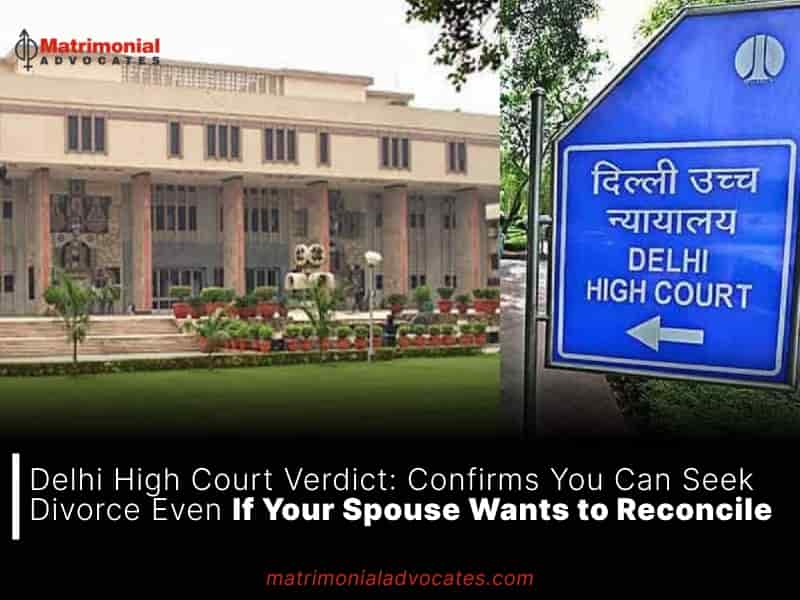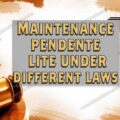
The Delhi High Court has recognized that if a spouse is ordered to restore conjugal rights, they can still apply for divorce under Section 13 (1A)(ii) of the Hindu Marriage Act.
In a recent case, the wife appealed under Section 19(1) of the Family Court Act, 1984. She contested a divorce decree issued under Sections 13(1)(ia) and 13(1A)(ii) of the Hindu Marriage Act, 1955, citing cruelty and the failure to enforce conjugal rights for over a year after the decree was issued.
A bench of Justice Neena Bansal Krishna and Justice Suresh Kumar Kait thus observed: “The very fact that Section 13 (1A) (ii) of the Hindu Marriage Act, enures to the benefit of “either party” clearly implies that in case of non-compliance of a Decree under Section 9 of the HMA, either party is entitled to seek divorce on this ground and the Judgment Debtor cannot be precluded from exercising his right to avail the relief thereof. Section 23 cannot be interpreted in a way to completely render the remedy under Section 13 (1A) (ii) otiose”
In this case, the husband, in his divorce petition, explained that after they got married, they first lived with his parents in Nagina, Haryana. However, the wife wasn’t happy with this and insisted they move to Delhi, where they stayed with the husband’s brother and sister-in-law because they couldn’t afford their own place.
Unfortunately, the wife often argued with the sister-in-law over small things, which led to bigger fights. This caused the husband to move out and get his own place in Delhi in 2004. Even after moving out, the wife continued to argue with him, especially when he returned from work, sometimes causing him to leave without eating breakfast.
The husband also said he got an insurance policy to support his wife financially if anything happened to him. Despite facing money problems, he tried his best to take care of her during her pregnancy, even though she often got upset. But things got worse when she accused him of cheating in front of family friends after their child was born, causing him a lot of embarrassment.
On top of that, the wife blamed the husband for everything, including not having enough money. She always wanted more, which caused a lot of fights between them because he couldn’t provide what she wanted.
“The various incidents narrated by the respondent towards the overall conduct and a non-adjusting attitude of the appellant who lacked maturity to even sort out the differences with the husband, leads to the irresistible conclusion that such conduct was bound to cause a grave apprehension in the mind of the respondent disrupting his mental equilibrium. Though these incidents may seem to be innocuous, insignificant or trifling when considered independently, but when such conduct prevails over a period of time, it is bound to create mental stress of the kind, which makes it impossible for the parties to survive in their matrimonial relationship…A wife should not be a constant reminder of one’s financial limitations. Pressurizing spouse to fulfil distant and whimsical dreams clearly not within his financial reach may create a sense of persistent dissatisfaction which would be sufficient mental strain to drain the contentment and tranquility out of any married life. One must tread carefully between the needs, wants and desires”, the bench noted in the order.
The wife contended that given the issuance of a decree for the Restitution of Conjugal Rights against the husband and his subsequent failure to comply with it, he should not be allowed to benefit from his own wrongdoing, as per Section 23 of the Hindu Marriage Act.
“This is also evident from the language of under Section 13 (1A) (ii) of the HMA which is to the effect that “either party”, which includes the decree holder as well as the judgment debtor, who can seek divorce in case of noncompliance of decree of Restitution of Conjugal Rights. If the Parliament intended that it is only the party in whose favour the restitution has been allowed, who can avail the remedy under Section 13 (1A) (ii) of the HMA, then the language would have been accordingly used in the said Section. The very fact that Section 13 (1A) (ii) of the Hindu Marriage Act, enures to the benefit of “either party” clearly implies that in case of non-compliance of a Decree under Section 9 of the HMA, either party is entitled to seek divorce on this ground and the Judgment Debtor cannot be precluded from exercising his right to avail the relief thereof. Section 23 cannot be interpreted in a way to completely render the remedy under Section 13 (1A) (ii) otiose.”, the court said while upholding divorce granted on this ground also.





